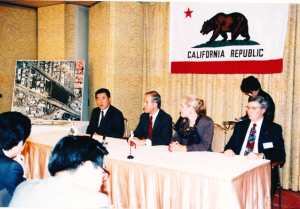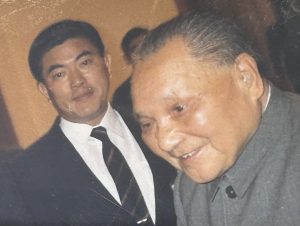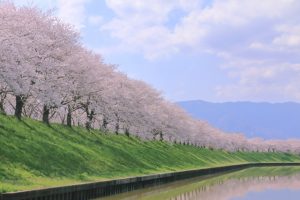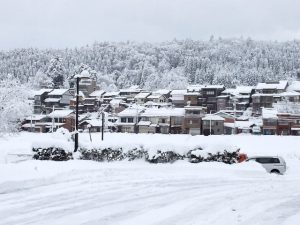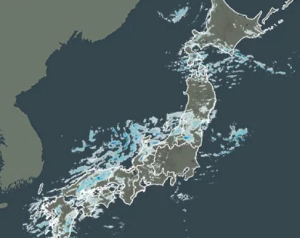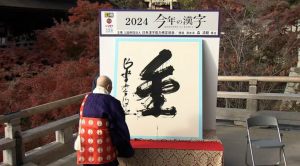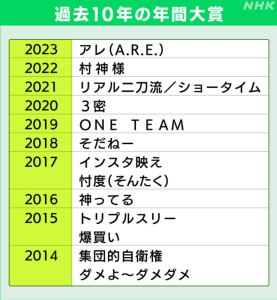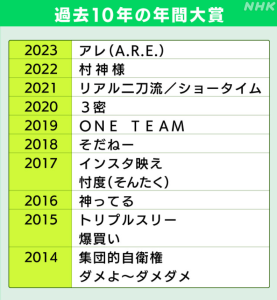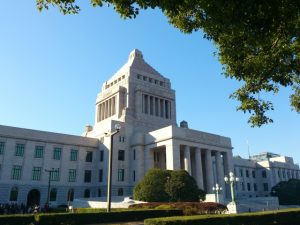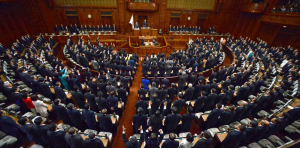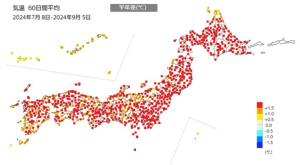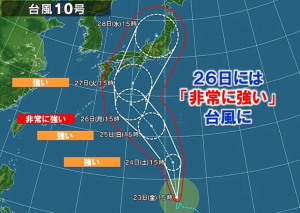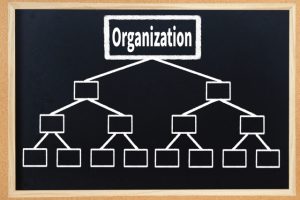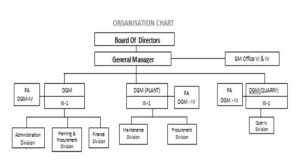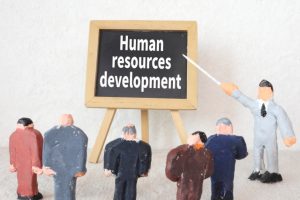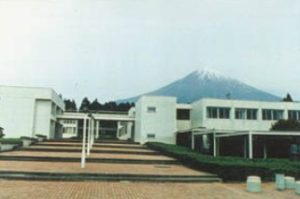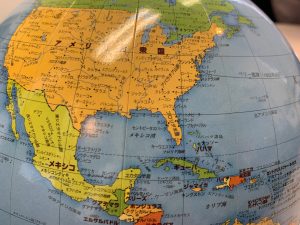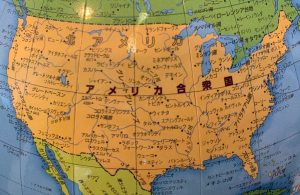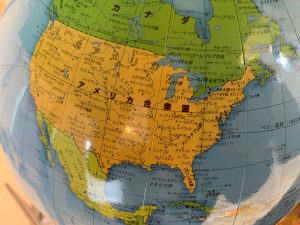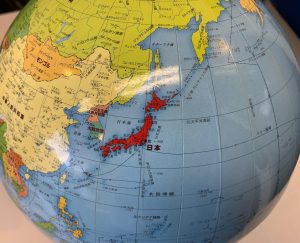Re: A news item and subject which I just want to check out (112) November 10, 2023
The last Friday, November 3, was “Culture Day” and updating my blog was off. Therefore, this streaming is for the first time in two weeks.
This week’s topic for residents in Kansai is undoubtedly that the Hanshin Tigers have become “the best in Japan” in 38 years. The estimated economic impact of the win has been disclosed as 130 billion yen, even though I don’t know a basis for calculation.
But when I have a cynical view, if the underlying strength of the local economy is becoming evident, it would have a positive effect. On the other hand, when I look at a reality called “real income marks 18 consecutive months of decline”, it could potentially be early start to the year-end shopping season. Eventually, as the initial enthusiasm wanes, the pendulum swings back to a harsh reality of frugality.
By the way, there are enthusiastic fans who wish “invincible Hanshin” among Hanshin Tigers fans, but “the strongest” which Giants fans always wish is not necessarily for Tigers fans that will stick with Tigers, when Tigers win or lose. In other words, it seems to be similar to parents feeling that it is heartwarming if somewhat “lazy son” rather than “son who has a good record and is an honor student” occasionally shows filial piety. Therefore, there is an ironic view that “Hanshin Tigers lose their uniqueness”, if they will be invincible, but I wish Tigers will be loved by fans forever. Incidentally, senior staff of my office is a typical enthusiastic Tigers fan.
On the other hand, in the U.S. baseball world, Ohtani has become a free agent (FA), and now, he is free to negotiate with all MLB teams, and it seems that the competition of acquisition is becoming intense. It is reported that the total amount of new contract will be 500 million dollars (about 75 billion yen). However, if players of big contract increase, the available funds for redirecting to other reinforcements are limited, and it goes against building “a winning team”. There is no room for doubt that Ohtani is an outstanding player. But baseball is a sport played by nine players and can’t be fought by one player. Angels finished fifth place in the American League West Division this year. In the end, the decision between relying on popularity of particular player or strengthening overall capability is a crucial one.
In this regard, the Hanshin Tigers had not an individual outstanding player this year. The number of home runs is 84, the fifth place among 6 teams in Central League, about half of Giants (164, the first place). Endurance of pitching staff, activity of young players, good batting eyes that Tigers obtained the league’s leading bases on balls and hit by pitch, and patient strategy by the manager have brought the crown.
In team sports, achieving victory requires a strong collective effort that prioritizes teamwork, not too much relying on particular player’s popularity and power. This also leads to business management.
■■What I have thought recently:
■Thinking about a gasoline subsidy:
The consumed amount of gasoline in Japan is decreasing by 2~3 % pace every year due to improvement of fuel efficiency of cars, decrease of vehicle ownership ratio and so on. Therefore, the number of gas stations was over 60 thousand at the end of the fiscal year 1994, but was reduced to less than half ,28 thousand, at the end of the fiscal year 2022 and on top of that, 40 % was self-service. The consumed amount of gasoline is expected to decrease furthermore in the future due to EV (electric vehicle). Because of this, the number of oil refineries is also deceasing, and Wakayama oil refinery of ENEOS has been closed down the other day, and it had a big impact on local economy.
On the other hand, crude oil price is on the verge of dipping below 80 dollars, in spite of production cut by major oil producing countries, because Iran and Brazil are increasing oil production and especially the oil production of the United States, the biggest oil producing country in the world, was record high in August, and the global economy is stagnant.
However, we have to learn from the first oil shock occurred 50 years ago. I remember clearly a state of confusion of our society at that time. All prices rose rapidly, and daily necessities including toilet papers disappeared from our sight because of buying up, and the world was in a panic. Incidentally, current consumer prices are 2~3 %, but inflation was fierce in 1974 when the CPI inflation rate was 20 % and prices over the counter rose almost every day.
Now, crude oil price is indeed stagnant due to various reasons. But this might be a temporary silence under very complicated geopolitical risk. In a global situation that is becoming increasingly complex, adjustment capability and influence of the United States are declining and public opinion is divided, and future political situation is also fluid. We never know what is going to happen in future, including the present Israel-Palestine war and Russian aggression in Ukraine. We never forget that the present global situation is in a state of walking on thin ice for Japan that oil import from the Middle East accounts for about 90 % of the total. We should “not let our guard down”.
Under such circumstances, the government has expressed its intention to continue subsidies including gasoline subsidy that are scheduled to be over at the end of the year until the end of April next year. However, the Board of Audit published survey results that “the amount equivalent to the subsidy may not have been reflected in the retail price”. Gasoline prices vary by region, but low-price sales like in the past have disappeared now. In other words, market price is becoming rigid.
On the other hand, to continue providing subsidies for gasoline, despite carrying a crisis-level national debt that is more than twice the GDP, is contradicting the goal of reducing consumption under a situation that there is a very fine line between the present time and the occurrence of oil crisis. And how many consumers are feeling benefit? I think that public transportation in Japan is world-class. Even for trucking companies that use diesel tied to the gasoline price as fuel, the subsidies hardly remain in the pocket of micro-enterprises, if continuing to leave the current excessive competition unaddressed. We should let trucking operators negotiate a price increase with shippers for survival, as an instrument or a reason of rising fuel prices and wage increase necessary for securing human resources. It might be a cold way of speaking, but strong market mechanism where operators who can’t do this have to leave is necessary for Japan. Pork-barreling of subsidies and grants increase zombie, and as a result, produces industrial structure where micro-enterprises account for 99.7 % of the total enterprises, and becomes one of the factors contributing to low productivity compared to other advanced countries. I wonder if long accumulation has brought a decline of national power where Japan was overtaken by China 12 years ago and will be overtaken by Germany and India soon in terms of GDP.





